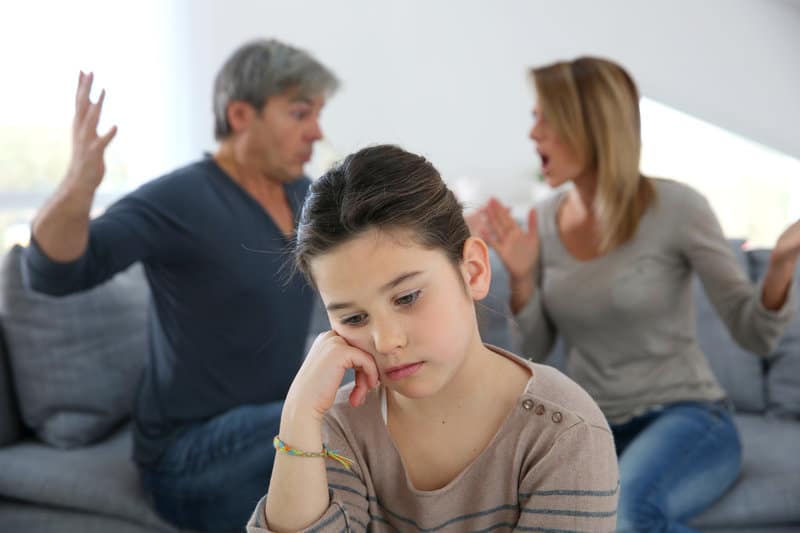
You may have heard that the divorce rate in the United States is about 50%.
Currently, the divorce rate hovers around 40 to 50%, though if you’re on your second or third marriage, the chance for divorce can be much higher.
No matter when you divorce, if you have kids with your partner, helping children cope with divorce can be difficult. Divorce itself can rock a child’s foundation and make them more susceptible to psychological issues in the future.
Children depend on their parents, but when they split up, they may be thrust into a world of independence. They may also feel their home life is no longer predictable or stable, two things that can shake children’s confidence and sense of self.
Additionally, many children may not be aware that divorce is permanent. Or, they may cling to the hope that one day the family will repair itself. While this does happen, this isn’t very likely.
Helping Children Cope With Divorce
As such, it is necessary that you and your ex-spouse work together to help your children through your separation and divorce.
Read on for more information and tips to help your children deal with their newfound reality.
Take Your Children To Therapy
If you’re able to afford it, take your children to therapy. This may even be a temporary thing.
It doesn’t matter what age your children are, taking them to therapy can be a healthy and productive way for them to process your divorce. There, they can vent their anger or frustrations to a third-party who will validate them and remain neutral.
If your child is very young, they can still benefit from therapy, especially if you take them to a psychologist who consistently sees young children. There are ways of helping young kids open up and process their emotions.
Reassure Them You Still Love Them
If your child suddenly sees one parent much less than they see the other, they may worry this is because the other parent no longer wishes to be in their life. They may also assume that one parent no longer loves them as much as they used to.
While you already know this isn’t true, a child may not be able to process this.
Discuss with your child that your separation has nothing to do with them or how much you or your ex love them. Reassure them that both of you love them the same as you always did, but that you will be living separately from now on.
Children should also know that this wasn’t their fault and there was nothing they could have done to prevent it from happening.
Set Up A Routine As Quickly As Possible
Children thrive on routines, and without one, they can feel lost or aimless.
With you and your ex living in the same house, they likely fell into a routine. You’ll have to create a new routine that will involve them seeing both you and your ex.
If your child is old enough, speak to them about what they would like for their routine to look like. While your child cannot make all the decisions themselves, you should take their input into account.
Establish a new routine so that your child knows what to look forward to and when.
Listen To Your Children
Encourage your kids to speak about their emotions. While you may assume the divorce mostly affects the two of you, remember that it will also affect your children, even if they don’t seem to show it.
Don’t tell them what will happen and then not allow them their own space to discuss it with you. While speaking to a third-party or therapist is very helpful, listening to them speak to you is also paramount.
You want your child to feel heard during this process, especially as it usually involves big changes for everyone in your immediate family.
Ask them how they feel about their parents splitting up, and let them know it is okay to not know how to feel or to even feel a little angry.
Some children may not express any emotions. They may do this to placate you and your ex. Even if your child says nothing about your divorce, do not think this is because it doesn’t affect them. It does, so allow them to show it.
Don’t Fight With Your Ex If You Can Help It
You and your ex divorced for a reason. You may hate them because of the things they’ve done in the marriage or find them insufferable, but unless you have concerns about them parenting or providing a safe place for your kids, they should still see your kids when they can.
As such, you should encourage them to have a relationship with your children, and that means being civil to one another. Try not to bad mouth them in front of your children or let your kids in on the intricacies of why you broke up.
When your kids are adults, they may become privy to some of these issues, but as long as they’re in your care, it isn’t their business. It shouldn’t color how they see your ex-spouse.
Need A Lawyer?
Helping children cope with divorce can be very difficult, especially if the divorce is also rough on you and your ex. But, if you make them a priority, your family will make it through to the other side.
Do you need a divorce lawyer with a strong experience in family law? Don’t hesitate to contact us today. We’ll help you take care of the legal stuff while you focus on your family.
